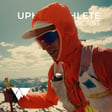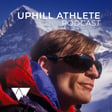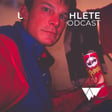
Our 24-Week Mountaineering Training Plan used by Damon T to climb both Everest and Lhotse!
In the episode, Scott Johnston talks with Damon Tedford who recently returned from successful climbs of both Mt Everest and Lhotse. While Damon and Scott have been in sporadic communication over the past couple of years using our phone consultation service he has been completely self-coached, using first our book Training for the New Alpinism to create his own training plan for the first couple of training cycles. For this final training build up prior to the Everest-Lhotse trip he bought and used our 24 week expeditionary mountaineering plan and slightly modified it because we consider those plans to be the bare minimum needed to succeed.
Show Notes:
Mountaineers on Mount Everest: Effects of age, sex, experience, and crowding on rates of success and death.
https://journals.plos.org/plosone/article?id=10.1371/journal.pone.0236919
Wilderness Medical Society Clinical Practice Update for Prevention and Treatment of Acute Altitude Illness: 2019 Update
https://www.wemjournal.org/article/S1080-6032(19)30090-0/fulltext



















